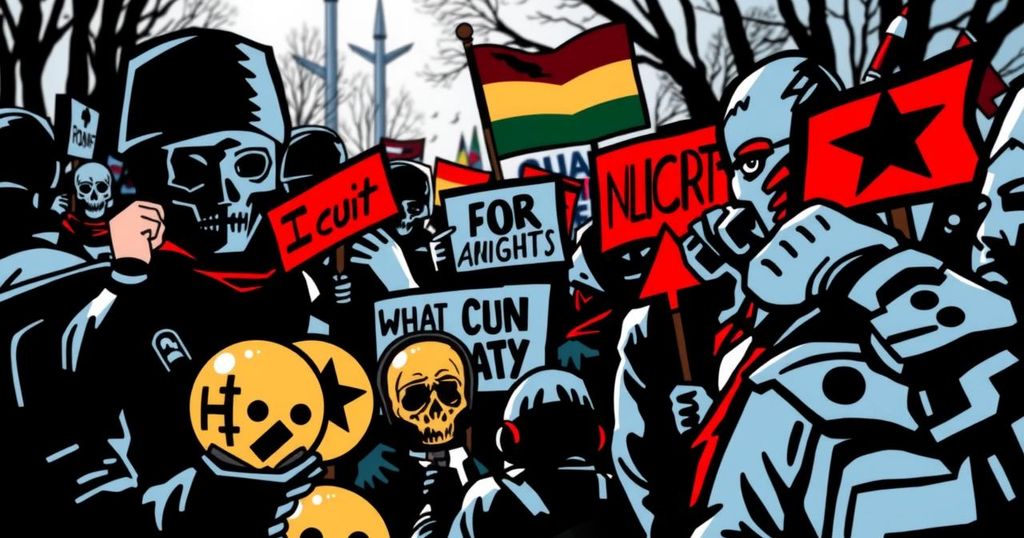Human rights advocates allege that the Azerbaijani government is repressing dissent and targeting environmental activists amid COP29. There has been a significant increase in political prisoners in the country, raising concerns about the legitimacy of Azerbaijan as a host for this critical climate summit. The situation calls for a reevaluation of the criteria used to select future host nations.
Human rights organizations have raised significant concerns regarding the Azerbaijani government’s treatment of environmental activists and political dissidents amid COP29, the international climate summit currently being held in the country. The Climate Action Network emphasized that safeguarding civil society is imperative for meaningful progress in climate initiatives. Reports indicate that since Azerbaijan’s designation as host in November 2022, there has been a marked increase in political repression, evidenced by over 300 political prisoners in recent months, according to the Union for Freedom of Political Prisoners in Azerbaijan. A prominent example is Gubad Ibadoglu, a London School of Economics professor, who remains under house arrest following dubious fraud charges widely deemed politically motivated. Additionally, environmental activist Anar Mammadli faced arrest shortly after advocating for Azerbaijan’s alignment with the Paris Agreement. Gender-based violence against civil society leaders has been corroborated by Amnesty International, indicating a troubling pattern of oppression ahead of the summit. Despite the Azerbaijani government’s assertion that it holds no political prisoners and that civil society participation is welcomed, activists contend that the environment for dissent has become increasingly hostile. Critics argue that hosting COP29 presents an opportunity for the Azerbaijani leadership to sanitize its international image while ignoring grave human rights violations. Azerbaijan’s plans to expand fossil fuel production contradict the principles of climate action discussed at COP29, raising concerns about the country’s sincerity in addressing climate change.
The backdrop of this situation is framed by the ongoing COP29 summit being held in Azerbaijan, where human rights groups have expressed alarm regarding governmental repression of dissent. This marks yet another instance in which a host nation for the climate summit has been accused of undermining civil rights, particularly the rights of environmental defenders. As global leaders convene to address climate change, the intersection of environmental advocacy and political oppression is drawing scrutiny, prompting discussions on the selection criteria for future host countries of such significant international events.
In summary, the COP29 summit has become a focal point of concern regarding the Azerbaijani government’s treatment of dissenting voices, particularly those advocating for environmental justice. The increasing number of political prisoners and the suppression of civil society raises critical questions about the adequacy of current protocols governing the hosting of climate summits. Advocates emphasize the necessity for international oversight and accountability in ensuring that climate action represents the voices and rights of all stakeholders involved.
Original Source: www.bbc.com






